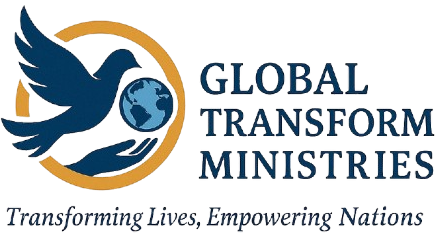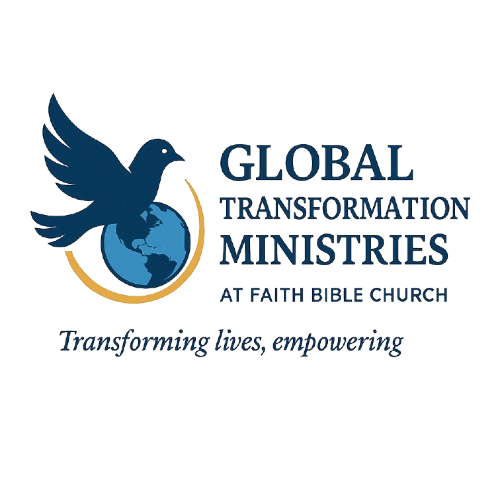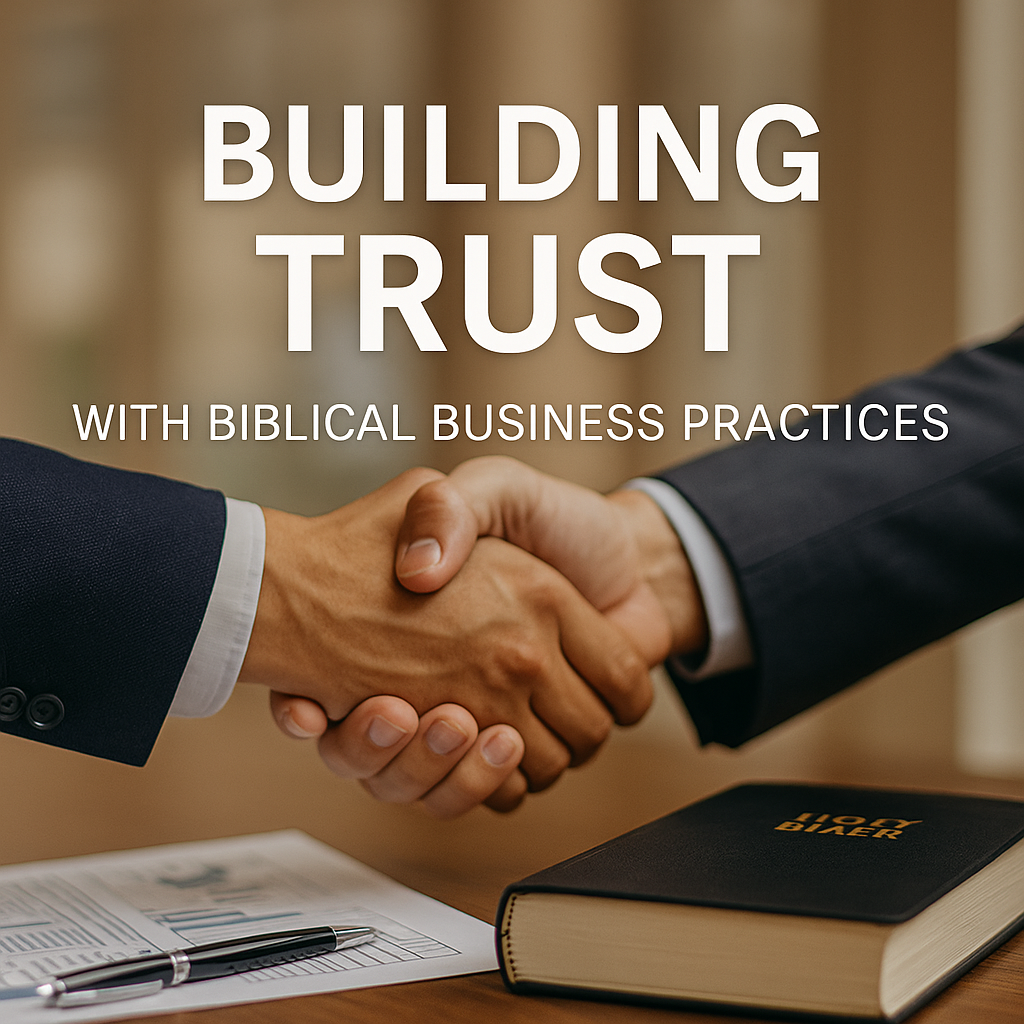
Building Trust with Biblical Business Practices
Building Trust with Biblical Business Practices Heading Level Title / Subheading H1 Building Trust with Biblical Business Practices H2 Introduction: Why Trust Matters in Business H2 Biblical Foundations of Trust in Work and Trade H3 God as the Ultimate Standard of Integrity H3 Old Testament Guidance on Fairness and Honesty H3 New Testament Teachings on Work, Service, and Trust H2 Core Biblical Business Practices That Build Trust H3 Honesty and Transparency in Dealings H3 Fair Wages and Respect for Workers H3 Servant Leadership and Humility H3 Stewardship and Accountability H2 Practical Applications for Modern Christian Business Leaders H3 Ethical Marketing and Communication H3 Responsible Supply Chain and Resource Management H3 Faith-Inspired Human Resource Practices H3 Financial Transparency and Integrity H2 Case Studies of Trust-Building Businesses H3 Historical Examples: Quakers and Early Christian Merchants H3 Modern Companies Guided by Faith Principles H2 The Role of Accountability and Community in Business H3 Internal Accountability Structures H3 External Partnerships and Witness H2 Challenges to Biblical Business Practices in Today’s World H3 Consumerism and Profit-First Culture H3 Globalization and Ethical Dilemmas H3 The Pressure of Moral Relativism H2 Integrating Faith and Business for Kingdom Impact H3 Business as Mission (BAM) H3 Kingdom Economics and Social Impact H3 Building Eternal Legacies Through Trust H2 FAQs on Building Trust with Biblical Business Practices H2 Conclusion: A Call to Faithful Business Stewardship Building Trust with Biblical Business Practices Building Trust with Biblical Business Practices Introduction: Why Trust Matters in Business In today’s global marketplace, trust is one of the most valuable currencies. Scandals, corruption, and broken promises have eroded public confidence in corporations and institutions. Yet, businesses rooted in biblical principles of honesty, service, and stewardship stand apart as beacons of reliability. As an academic with more than fifty years of experience at Harvard University and in ministry with Global Transformation Ministries (GTM), I have witnessed how biblical business practices not only strengthen organizations but also reflect Christ’s kingdom in the world. This article explores how building trust through biblical business practices transforms both companies and communities—demonstrating that faith and commerce are not in conflict, but deeply complementary. Biblical Foundations of Trust in Work and Trade God as the Ultimate Standard of Integrity Scripture declares: “God is not human, that he should lie” (Numbers 23:19). Trust originates in God’s unchanging character. In business, Christians mirror God’s trustworthiness when they act with integrity and consistency. Old Testament Guidance on Fairness and Honesty Ancient commerce often relied on literal scales, and God demanded fairness in trade. Today, the principle applies to fair pricing, honest contracts, and transparent operations. New Testament Teachings on Work, Service, and Trust Trustworthiness in the New Testament is rooted in sincerity, faithful service, and consistency in word and action. Core Biblical Business Practices That Build Trust Honesty and Transparency in Dealings Ephesians 4:25 commands believers to “put off falsehood and speak truthfully.” Businesses build trust when they avoid misleading claims, disclose accurate information, and uphold clarity in all agreements. Fair Wages and Respect for Workers James 5:4 condemns withholding wages from laborers. Modern applications include: Respecting workers reflects Christ’s love and strengthens organizational trust. Servant Leadership and Humility Jesus declared: “Whoever wants to become great among you must be your servant” (Mark 10:43). Christian leaders build trust not by wielding power but by serving employees, customers, and communities. Stewardship and Accountability The Parable of the Talents (Matthew 25:14–30) illustrates that leaders are stewards, not owners. Businesses must manage finances, people, and resources responsibly, accountable both to God and stakeholders. Practical Applications for Modern Christian Business Leaders Ethical Marketing and Communication Truthful advertising, transparent contracts, and customer care policies demonstrate integrity. Trust grows when promises match performance. Responsible Supply Chain and Resource Management Biblical stewardship requires evaluating whether suppliers exploit labor, damage creation, or operate unjustly. Ethical supply chains honor God and protect trust. Faith-Inspired Human Resource Practices Training, mentorship, and employee care rooted in biblical principles nurture loyalty. Leaders who pray with teams, provide flexibility for family, and uphold Sabbath rest embody trust-building practices. Financial Transparency and Integrity Clear accounting, honest reporting, and avoidance of corrupt practices reflect Proverbs 10:9: “Whoever walks in integrity walks securely.” Case Studies of Trust-Building Businesses Historical Examples: Quakers and Early Christian Merchants In the 18th century, Quaker merchants became trusted global traders because they avoided dishonest practices, honored contracts, and treated workers fairly. Their reputation made “Quaker goods” a byword for trust. Modern Companies Guided by Faith Principles These examples show how biblical trust practices create long-term loyalty and sustainable business. The Role of Accountability and Community in Business Internal Accountability Structures Ethical boards, transparent reporting systems, and strong organizational values ensure businesses remain aligned with biblical principles. External Partnerships and Witness When Christian businesses uphold integrity, they become witnesses in the marketplace—demonstrating Christ’s kingdom values to customers, competitors, and society. Challenges to Biblical Business Practices in Today’s World Consumerism and Profit-First Culture The relentless pursuit of profit tempts businesses to compromise integrity. Yet Jesus warned: “What good is it for someone to gain the whole world, yet forfeit their soul?” (Mark 8:36). Globalization and Ethical Dilemmas Outsourcing and complex supply chains create challenges in maintaining ethical oversight. Biblical businesses must navigate these complexities without compromising values. The Pressure of Moral Relativism Today’s culture often rejects absolute standards of right and wrong. Yet Scripture provides clear moral anchors that sustain trust. Integrating Faith and Business for Kingdom Impact Business as Mission (BAM) Christian entrepreneurs increasingly use business as a platform for mission—creating jobs, building trust, and sharing the gospel. Kingdom Economics and Social Impact Faith-driven business prioritizes people over profit and seeks to uplift communities—through fair wages, ethical investments, and philanthropy. Building Eternal Legacies Through Trust Matthew 6:19–21 reminds us that eternal treasures matter more than earthly success. Businesses built on trust create legacies that endure beyond balance sheets. FAQs on Building Trust with Biblical Business Practices Q1: Can Christian businesses be both profitable and ethical?Yes. Research shows trust-based companies often enjoy greater loyalty and long-term profitability. Q2:
Read more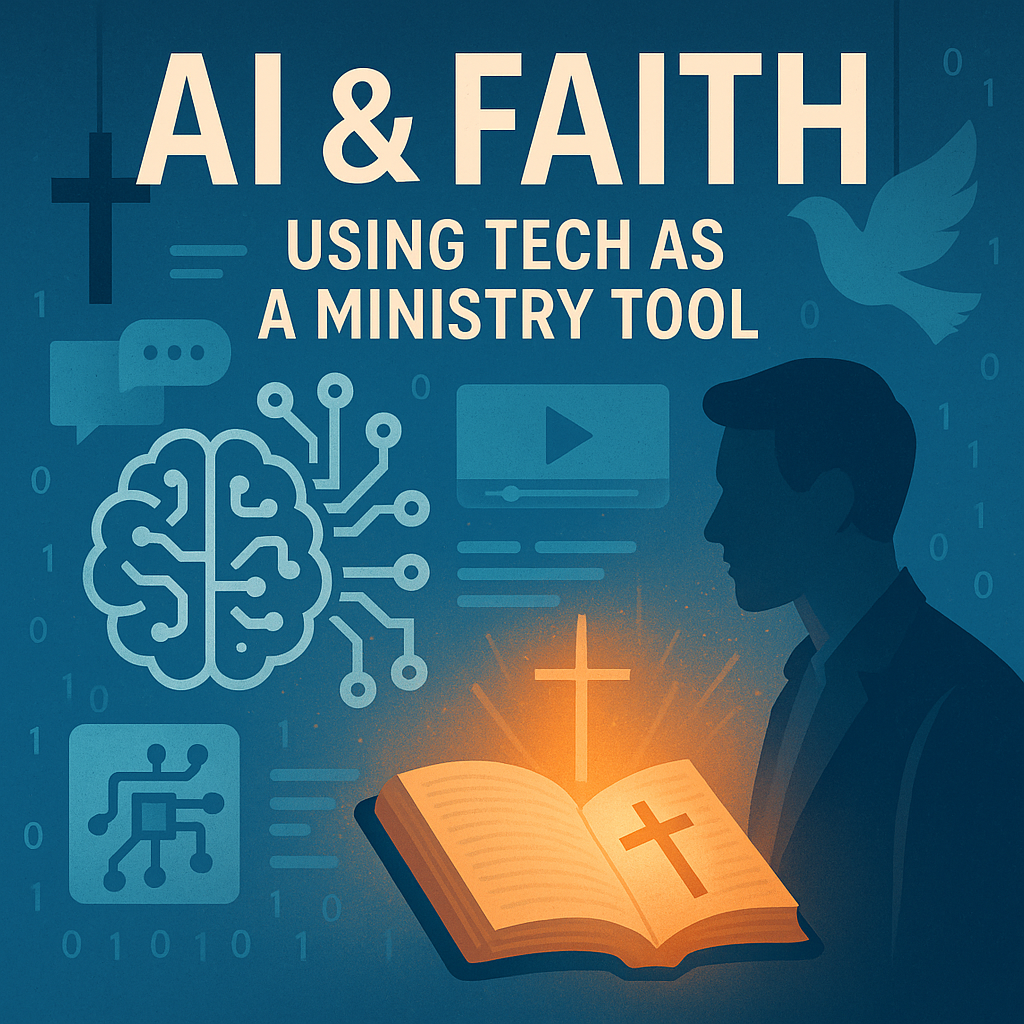
7 Inspiring Ways AI & Faith: Using Tech as a Ministry Tool for Kingdom Impact
AI & faith: using tech as a ministry tool – discover how believers can harness artificial intelligence to enhance outreach, discipleship, and Gospel influence in today’s digital age. AI & Faith: Using Tech as a Ministry Tool Outline Heading Description H2: Understanding AI’s potential in ministry Define AI, explore opportunities for church and missions H2: Biblical perspectives on innovation and tools How scripture values creativity, wisdom, and tools H2: Key ministry areas enhanced by AI Content creation, virtual discipleship, analytics H2: AI-powered content and engagement Chatbots, sermon transcripts, social media content H2: Virtual discipleship & community building AI coaching, online Bible study assistants H2: Data insights: making ministry smarter Analytics for attendance, giving patterns, needs H2: Ethical considerations and faith alignment Bias, privacy, stewardship of data H2: Real examples: Global Transformation Ministry usage How GTM programs integrate AI tech in ministry H2: Overcoming concerns and building trust in technology Fear of dehumanization, theology of tools H2: Measuring impact: outcomes and feedback loops Growth in reach, engagement, conversions H2: Tools & training from Global Transformation Ministry AI in ministry workshops, resource toolkits H2: Action plan download for AI-empowered ministry Interactive ministry planning sheet H2: Frequently Asked Questions Six or more FAQs H2: Call to Action: Join GTM AI Ministry Programs Engagement prompts, next steps Understanding AI’s Potential in Ministry Artificial Intelligence (AI) isn’t just futuristic—it’s a powerful ministry tool today. From automated content support to personalized discipleship, AI can multiply outreach, streamline tasks, and free leaders for deeper pastoral care. The intersection of AI & faith offers a new avenue for Kingdom innovation. Biblical Perspectives on Innovation and Tools Scripture does not fear tools or innovation—instead, it affirms human creativity as God’s gift. In Exodus, engineers build tabernacle components. In Bezalel and Oholiab, God empowers artisans. These narratives show that when tools are aligned with God’s purposes, they serve His mission. Key Ministry Areas Enhanced by AI AI helps ministries optimize impact and extend reach without losing personal connection. AI‑Powered Content and Engagement These tools support consistent, high-quality outreach without overwhelming volunteers. Virtual Discipleship & Community Building AI assistants can be trained to support Bible study plans, prayer reminders, and spiritual coaching. Virtual small-group facilitation via AI chat reduces friction and keeps discipleship moving—even in remote or busy environments. Data Insights: Making Ministry Smarter AI-powered analytics can help ministry leaders: Such insights enable wise stewardship of resources and personal care. Ethical Considerations and Faith Alignment Using AI requires wisdom: Faithful frameworks guide ethical technology use. Real Examples: Global Transformation Ministry Usage Global Transformation Ministry has begun integrating AI tools in several programs: These tools multiply ministry reach and reduce administrative load. Overcoming Concerns and Building Trust in Technology Some worry AI will replace human care. But much like a well-built tool, AI should serve—not supplant—human connection. Leaders can build trust by emphasizing transparency, explaining AI’s role, and ensuring that pastoral follow‑up remains human-led. Measuring Impact: Outcomes and Feedback Loops Categories to track: Tools & Training from Global Transformation Ministry GTM equips churches and ministries with: Action Plan Download for AI‑Empowered Ministry Sign up to receive a FREE AI Ministry Strategy Planner, which includes: Frequently Asked Questions 1. Is AI compatible with Christian ministry?Yes—when used wisely, AI is a modern tool to amplify outreach, support discipleship, and expand service while remaining grounded in Scripture. 2. Can AI replace pastoral care?No. AI offers assistance and scalability, but genuine pastoral care and human empathy remain irreplaceable. 3. Is using AI ethical from a biblical standpoint?Yes—as long as it respects privacy, avoids bias, and serves God-honoring purposes under accountable leadership. 4. Do small churches or ministries benefit from AI?Absolutely—even basic tools like newsletter automation or chatbot phrases can extend reach and free up leaders. 5. Are there costs or risks to implementing AI?Some tools have associated costs or require tech familiarity. Ministries should budget and train carefully before deployment. 6. How do I maintain authenticity when using AI-generated content?Always review, edit, and personalize AI outputs. Let AI assist, but let human heart and discernment remain in final content. Conclusion & Call to Action AI & Faith: using tech as a ministry tool opens kingdom-minded doors of innovation, reach, and faithful service.When properly stewarded, AI multiplies impact while preserving heart-driven care. 👉 Ready to explore further? Join Global Transformation Ministry’s AI in Ministry Workshop or Digital Ministry Cohort, download the strategy planner, and begin using tech to serve timeless truths today.
Read more
6 Powerful Reasons Generosity as Business Strategy: Giving Before Gaining Drives Success
Generosity as business strategy: giving before gaining – discover how faith-led generosity builds trust, culture, and success while benefiting communities. Generosity as Business Strategy: Giving Before Gaining Outline Heading Description H2: Introduction to generosity-first business strategy Defining the approach and its biblical alignment H2: Biblical principles behind giving before gaining Scriptural foundations: Luke, Acts, Matthew H2: Benefits of generosity as a strategic practice Trust-building, loyalty, brand impact H2: How giving-first transforms workplace culture Employee motivation, teamwork, morale H2: Implementing generosity in business models Profit-sharing, community reinvestment, client gifts H2: Balancing generosity with financial sustainability ROI, budgeting, margin management H2: Real-world examples: Kingdom-minded businesses Stories tied to Global Transformation Ministry H2: Overcoming objections and maintaining discipline Preventing burnout or misuse H2: Measuring impact: metrics and feedback loops Customer lifetime value, employee retention, social impact H2: Tools & training from Global Transformation Ministry Programs for leaders and entrepreneurs H2: Step-by-step action plan download offer Encourage sign-up H2: FAQs on generosity-driven business strategy Six or more realistic questions H2: Call to Action: Join Ministry Programs Engage with cohorts and resources Introduction to Generosity‑First Business Strategy Adopting generosity-first means choosing to give value—time, resources, service—before expecting return. In business, this strategy establishes credibility and purpose. Grounded in Christian values, it views profit not as the primary aim but a byproduct of faithful service and generous leadership. Biblical Principles Behind Giving Before Gaining Key scriptures inspire the generous business approach: These scriptures affirm that generosity invites abundance through God’s providence. Benefits of Generosity as a Strategic Practice Generosity sends a message: You serve people, not just profit. How Giving‑First Transforms Workplace Culture Internally, generosity fosters: Implementing Generosity in Business Models Ways to operationalize generosity: Balancing Generosity with Financial Sustainability Strong generosity strategies require discipline: Real‑World Examples: Kingdom‑Minded Businesses Several entrepreneurs connected to Global Transformation Ministry integrate generosity in their model: Overcoming Objections and Maintaining Discipline Concerns may include: Measuring Impact: Metrics and Feedback Loops Track through: Tools & Training from Global Transformation Ministry Global Transformation Ministry offers: Step‑by‑Step Action Plan Download Offer Sign up today to receive a FREE Generosity Strategy Planner—including: Frequently Asked Questions 1. Can businesses really give before gaining?Yes! Many Kingdom-minded companies start by offering free insights or pilot services—gains come through trust and long-term partnership. 2. What percentage of revenue should go toward generosity?There’s no one-size-fits-all rule—many start with 5–10% and adjust as impact and financial stability allow. 3. How can smaller businesses adopt giving-first models?Even small free gestures—resource guides, mentoring, local volunteering—signal commitment and build credibility. 4. Could this approach harm profitability?Only if mismanaged. With proper planning and measuring, generosity strengthens relationships and long-term sustainability. 5. Is giving meant for specific industries?No—it applies across sectors: hospitality, tech, services, retail—anywhere a company can serve beyond the transaction. 6. How do I start if I’m not in leadership?Begin in your scope: propose a team-level gift, mentor someone, or donate part of your sales commissions. Conclusion & Call to Action Generosity as business strategy is far more than a feel-good tactic—it’s Kingdom-led wisdom with transformative power in enterprise. Giving before gaining positions your business for relational depth, cultural strength, and enduring impact. 👉 Join Global Transformation Ministry’s Generosity Cohort or Business Strategy Workshops today to begin implementing this faith-fueled approach. Download your planner and empower your business to give as God gives.
Read more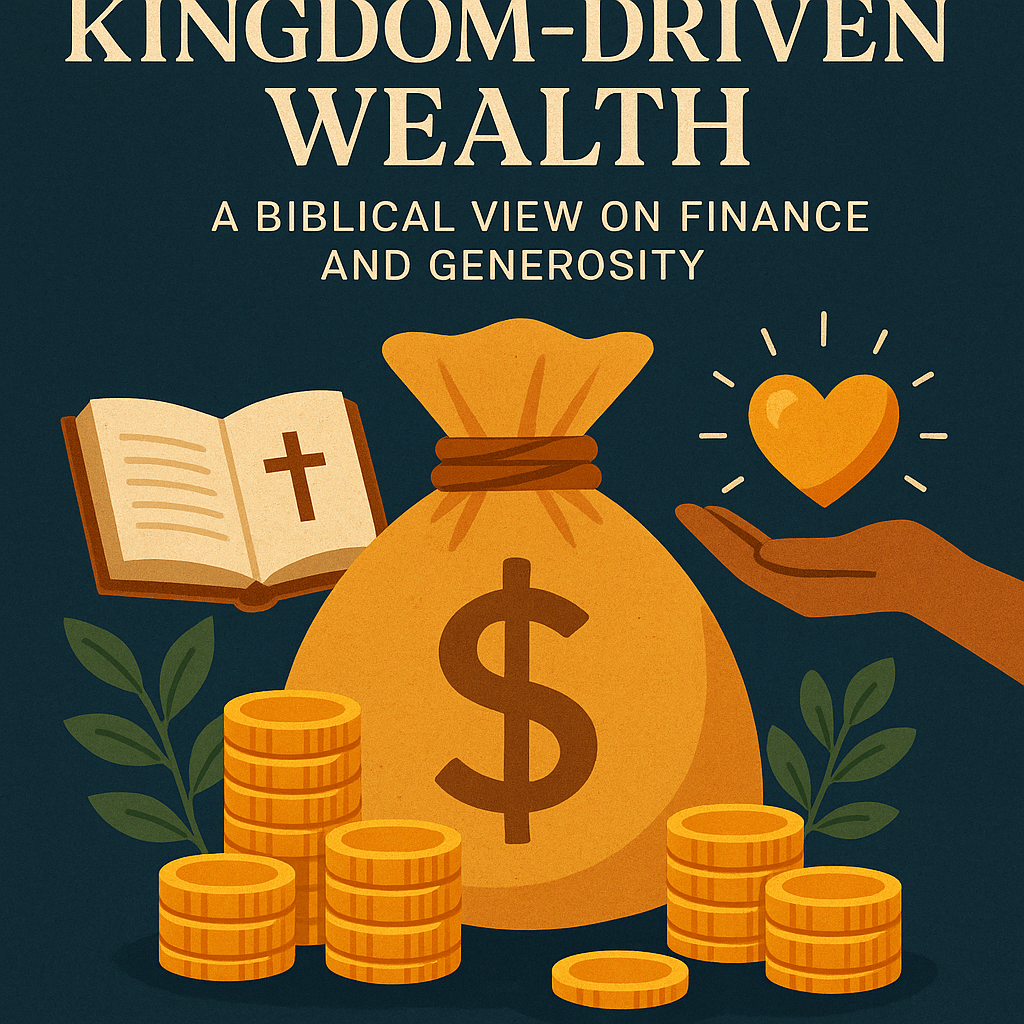
7 Kingdom‑Driven Wealth Principles: Biblical Finance and Generosity That Impact Communities
7 Kingdom‑Driven Wealth Principles: Biblical Finance and Generosity That Impact CommunitiesMeta Description: Kingdom‑Driven Wealth: a biblical view on finance and generosity – explore how scriptural stewardship and giving transform life, business, and community impact. Kingdom‑Driven Wealth: a biblical view on finance and generosity Outline Heading Description H2: Understanding Kingdom‑Driven Wealth Biblical worldview of prosperity and purpose H2: The biblical foundations for finance and generosity Scriptural references: Proverbs, Malachi, Luke, 2 Corinthians H2: Stewardship: managing resources God’s way Principles of trust, planning, and accountability H2: Generosity: heart, habits, and impact Tithing, offering, sacrificial giving H2: Balancing prosperity and humility Avoiding pride, materialism, and greed H2: Practical frameworks for biblical financial habits Budgeting, saving, debt management, investing H2: Kingdom wealth in business and entrepreneurship Social enterprise, ethical profits, reinvestment H2: Generosity as a lifestyle and community force Outreach, mercy funds, impact donations H2: Case studies: Global Transformation Ministry impact stories Real-life outcomes of faith-based giving H2: Overcoming financial fears and spiritual blocks Anxiety, entitlement, scarcity mindsets H2: Measuring impact: spiritual and social ROI Community testimonials, kingdom metrics H2: Tools & support from Global Transformation Ministry Financial discipleship workshops, giving guides, mentorship H2: Monthly action planner for biblical wealth and giving Downloadable scriptural budgeting sheet H2: Frequently Asked Questions Six or more FAQs H2: Call to Action: Engage with Ministry Opportunities Join cohorts, download resources, become a transformational giver Understanding Kingdom‑Driven Wealth Kingdom‑Driven Wealth isn’t just about income—it’s about aligning your financial life with God’s purposes. Biblical generosity, stewardship, and faithful management turn resources into tools for eternal impact. Rather than chasing worldly prosperity, believers pursue wealth with meaning—fueling missions, caring for the vulnerable, and honoring God with every dollar. The Biblical Foundations for Finance and Generosity Scripture offers numerous guiding passages: These form the ethical foundation of Kingdom financial practice. Stewardship: Managing Resources God’s Way Biblical stewardship includes budgeting, saving, transparency, and accountability. It means: Generosity: Heart, Habits, and Impact Generosity flows from faith—but it’s also a habit: When generosity becomes lifestyle—benevolence flows, compassion grows, and communities change. Balancing Prosperity and Humility Wealth carries risk—pride, complacency, and temptation. Scripture offers warnings: Practical Frameworks for Biblical Financial Habits Kingdom Wealth in Business and Entrepreneurship Kingdom-driven businesses operate on values: Generosity as a Lifestyle and Community Force Generous believers contribute beyond church envelopes: Case Studies: Global Transformation Ministry Impact Stories Shared testimonies highlight: Overcoming Financial Fears and Spiritual Blocks Common barriers: Measuring Impact: Spiritual and Social ROI Track impact through: Tools & Support from Global Transformation Ministry Global Transformation Ministry equips believers with: Monthly Action Planner for Biblical Wealth and Giving Sign-up to receive a FREE Monthly Action Planner—complete with: Frequently Asked Questions 1. What is Kingdom‑Driven Wealth?It’s the biblical approach to using financial resources to honor God, serve others, and steward what He entrusts. 2. How much should I give?Start with tithing if comfortable; then consider giving offerings, mercy funds, or sacrificial giving as led by faith. 3. Is investing aligned with biblical generosity?Yes, when done with integrity, purpose, and thinking of long-term stewardship—not greed. 4. What if I’m in debt?Begin by budgeting, reducing unnecessary expenses, and pay down high-interest debt. Generosity can still exist in sacrifice. 5. How can businesses practice Kingdom‑Driven Wealth?By operating ethically, compensating fairly, giving a portion of profits back to mission, and mentoring new entrepreneurs. 6. Will generosity affect my financial stability?When generosity is balanced with budgeting, saving, and wise stewardship, it enhances long-term peace and stability. Conclusion & Call to Action Kingdom‑Driven Wealth reshapes how we handle money—turning profit into purpose. When biblical stewardship and generosity guide finances, lives and communities flourish. 👉 Ready to take the next step? Join Global Transformation Ministry’s Financial Discipleship Training or Generosity Cohort—download your action planner and start stewarding Kingdom wealth today.
Read more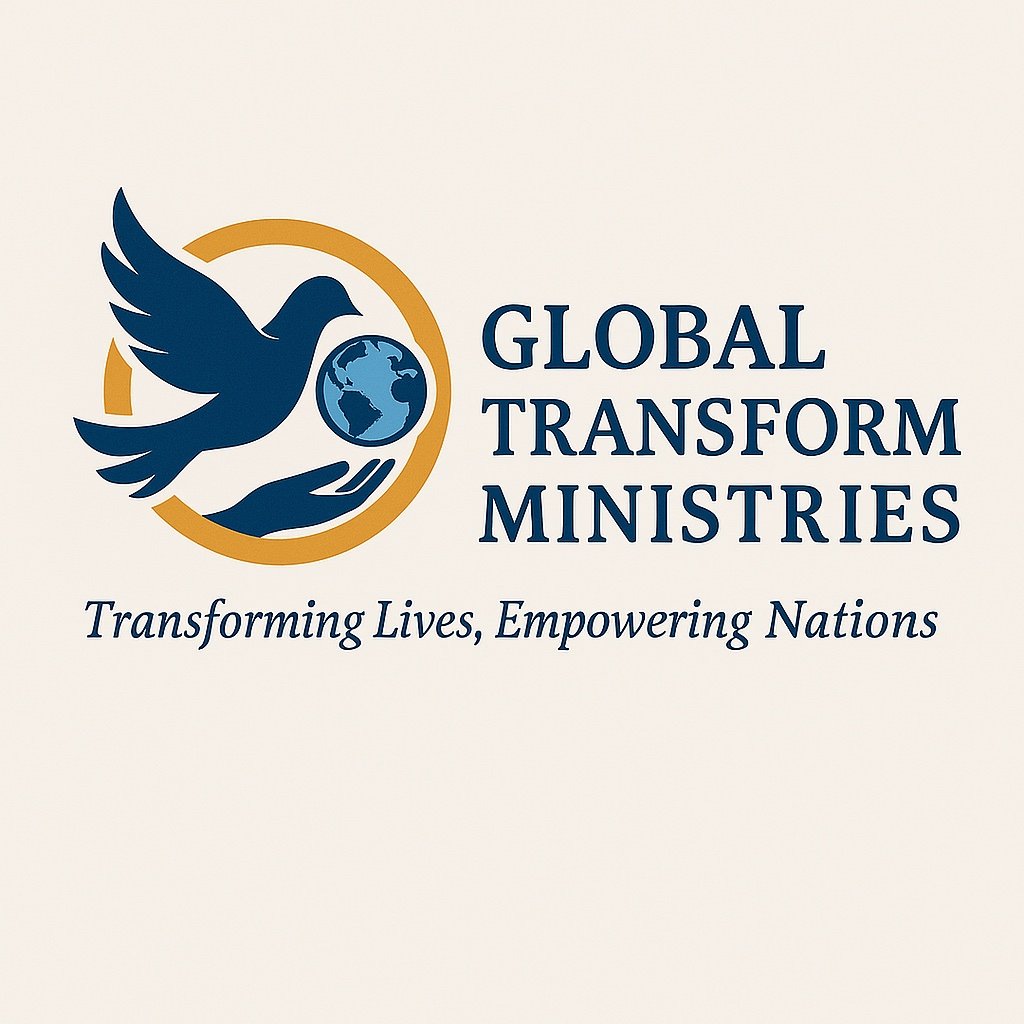
Welcome to Global Transformation Ministries (GTM)—where lives are restored, communities are lifted, and destinies are realigned through faith, prayer, and action in Montgomery County, Maryland and beyond
- 240-374-1814
- hello@joingtmmd.org
- Global Transformation Ministries 1645 Yale Place, Rockville, MD 20850
